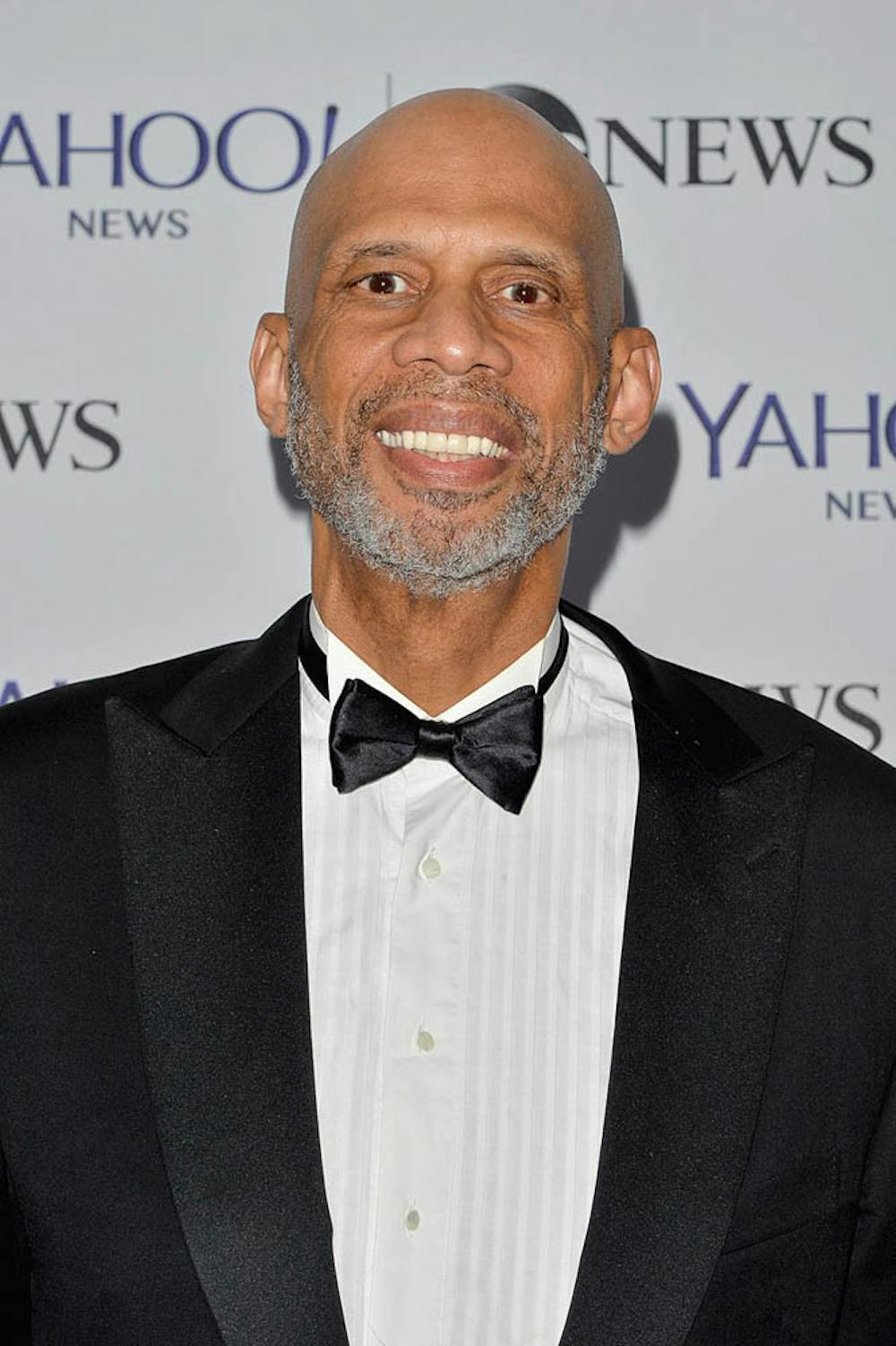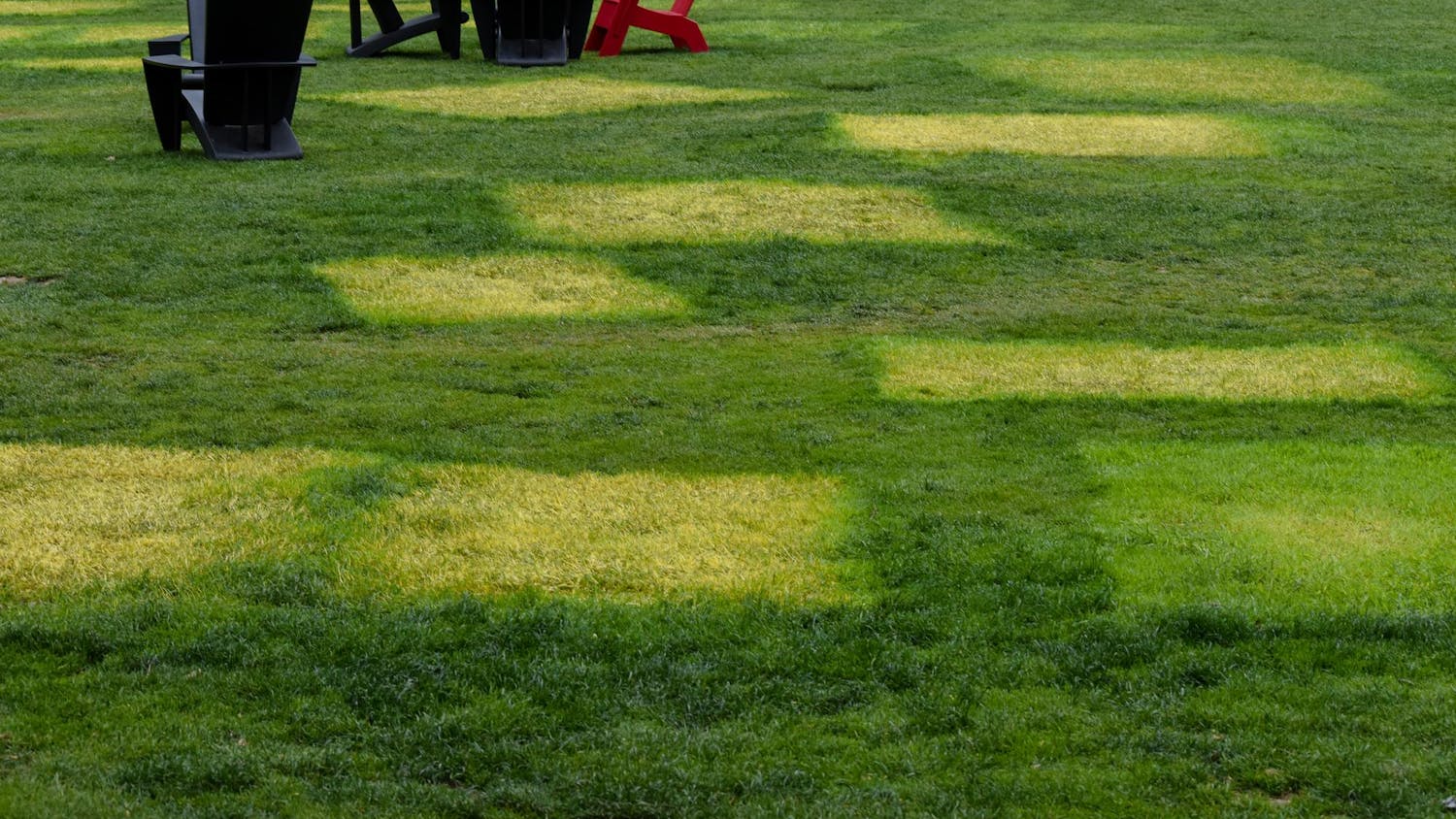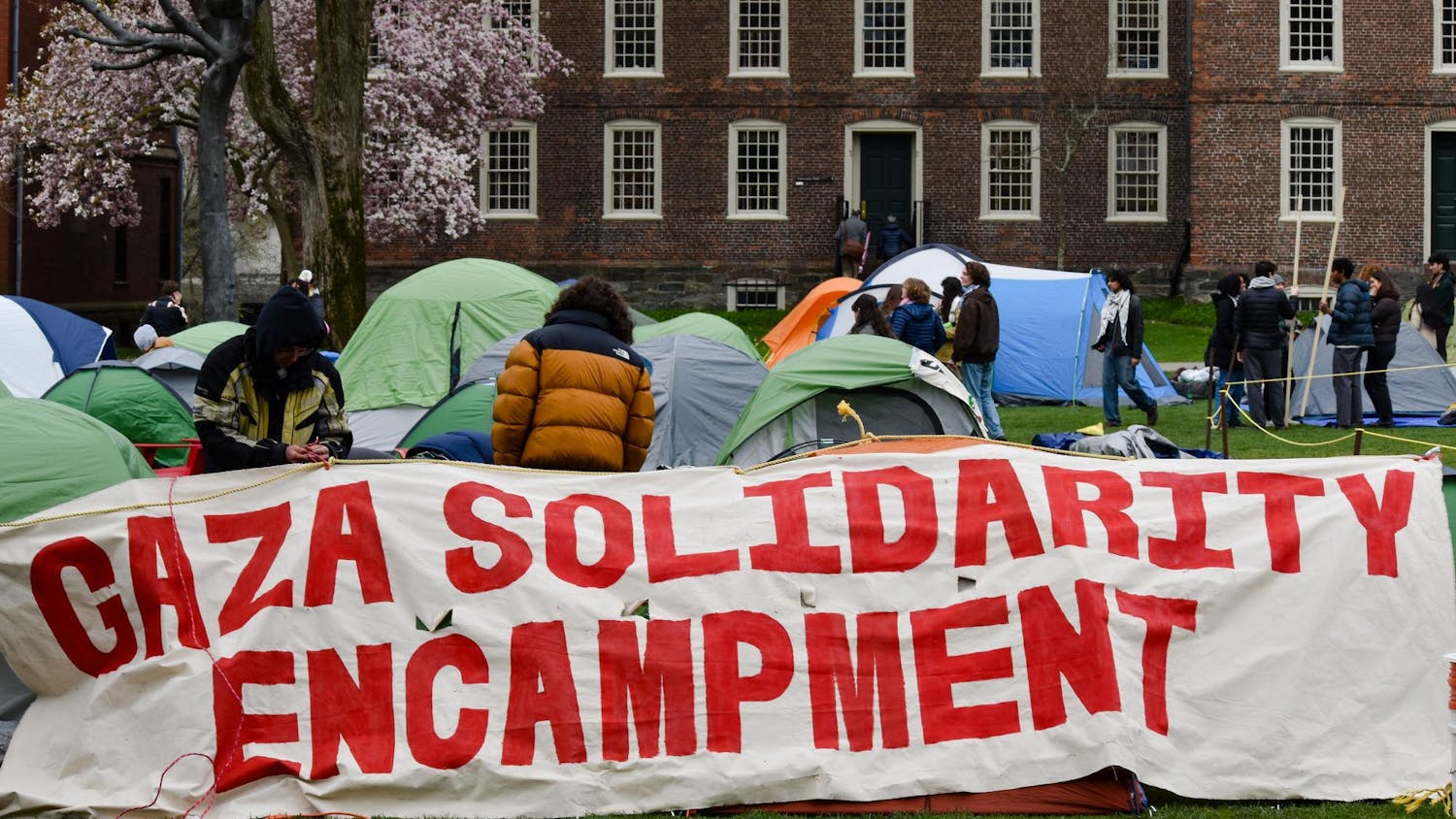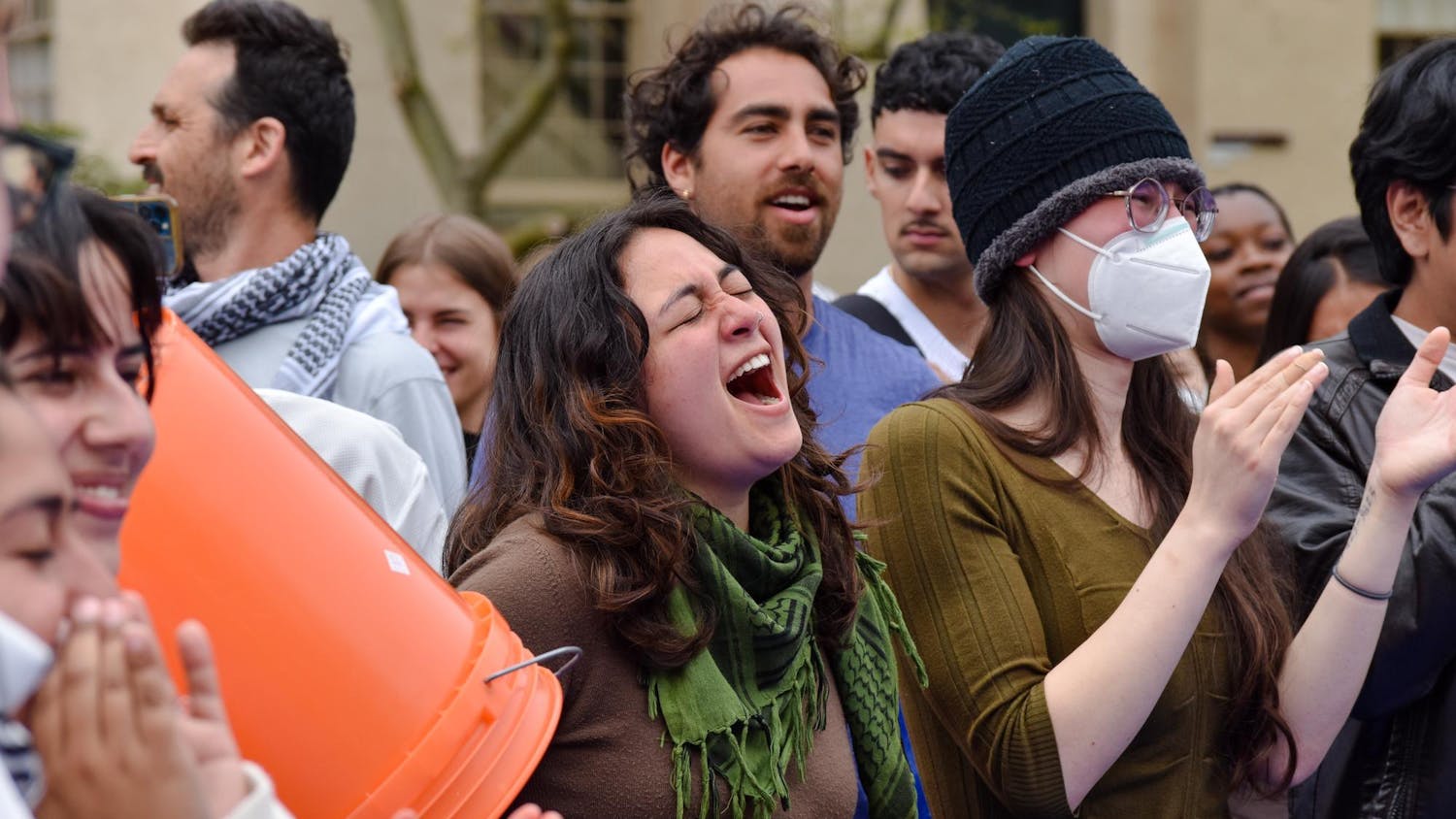No one had a larger presence in Salomon 101 than Kareem Abdul-Jabbar, both figuratively and literally. The 7-foot-2-inch former NBA player spoke before an eager crowd Monday night in a lecture hosted by the Brown Lecture Board.
Despite his numerous athletic accolades, ranging from NBA All-Time Leading Scorer to six-time NBA MVP, Abdul-Jabbar focused on his impact as an activist. In his life outside the NBA, Abdul-Jabbar has earned the Double Helix Medal for raising awareness for cancer research and the Presidential Medal of Freedom from former President Barack Obama. In her introduction of Abdul-Jabbar, Herald columnist Randi Richardson ’20 lauded Abdul-Jabbar’s activism, emphasizing how he taught her “the need to use a platform for the advancement of social and political justice.”
Abdul-Jabbar began his lecture by describing his time as a teenager in Harlem, where he got the chance to meet Martin Luther King Jr., a turning point in his life.
“I put it all together at that point,” Abdul-Jabbar said. “I understood what my community was about and the problems that we had to work on. I wanted to prepare myself, and I started to consider where I would educate myself.”
Abdul-Jabbar went on to earn a degree from the University of California, Los Angeles, where he met several people who would deeply influence his life. In his freshman year, he met boxer and activist Muhammad Ali, a friend who helped him “understand the difference between just being popular and being someone who could be a real leader.”
He then spoke about his commitment to activism, and, more specifically, the civil rights movement. After reading Alex Haley’s collaboration with Malcolm X, “The Autobiography of Malcolm X,” Abdul-Jabbar said he began to fully understand the black American experience. But his “attachment to activism really started in 1955,” when Emmett Till, a 14-year-old African American, was lynched after a white woman claimed he made advances toward her.
From then on, activism became Abdul-Jabbar’s “guiding light.” “Until all of us are free, none of us are free,” Abdul-Jabbar said.
Beyond basketball and activism, Abdul-Jabbar is also a devout Muslim. Born Ferdinand Lewis Alcindor Jr., Abdul-Jabbar did not publicly announce he was Muslim until after achieving some success in the NBA.
“Being able to assert an identity that is in harmony with who I am and what my ancestry is all about and what my moral and political feelings are all about — that is the most important thing for me,” Abdul-Jabbar said.
In today’s politically and socially charged climate, Abdul-Jabbar emphasized that “we still have work to do.” But despite violent occurrences such as the Unite the Right rally in Charlottesville, Abdul-Jabbar still finds hope through the nation’s response to such violence.
“As bad as seeing that was, (there) was one aspect of it that really gave me some heart — and that was the response from across America,” Abdul-Jabbar said. “They all stood up and said, ‘That’s not us. That’s not America.’”
Abdul-Jabbar only mentioned his career as a basketball player as supplement to his growth academically, religiously and emotionally, but audience members took their chance during the question-and-answer session to shower him with questions about the current state of the NBA and his favorite players.
With so many experiences in his lifetime, it came as no surprise when an audience member eventually asked if he would ever consider a career in politics. Abdul-Jabbar kept his answer simple: “I’ve tried my best my whole life not to tell fibs. I don’t want to start now.”





